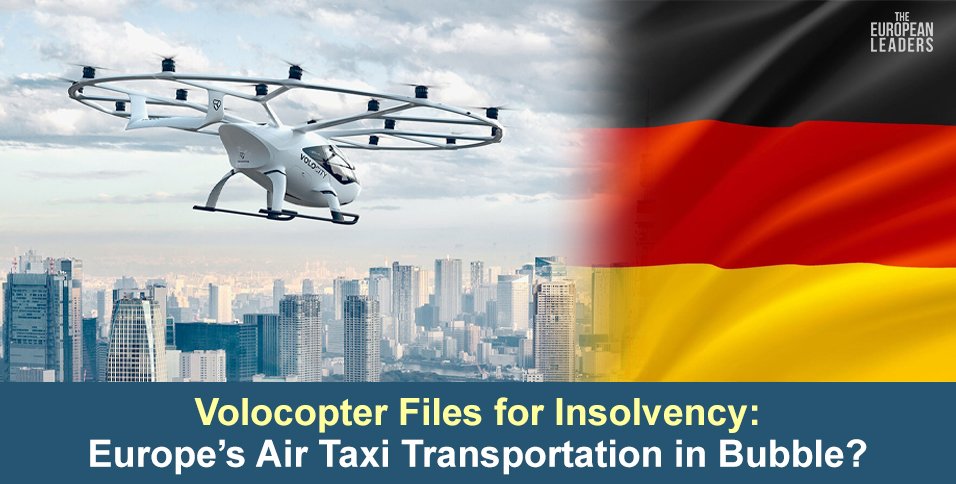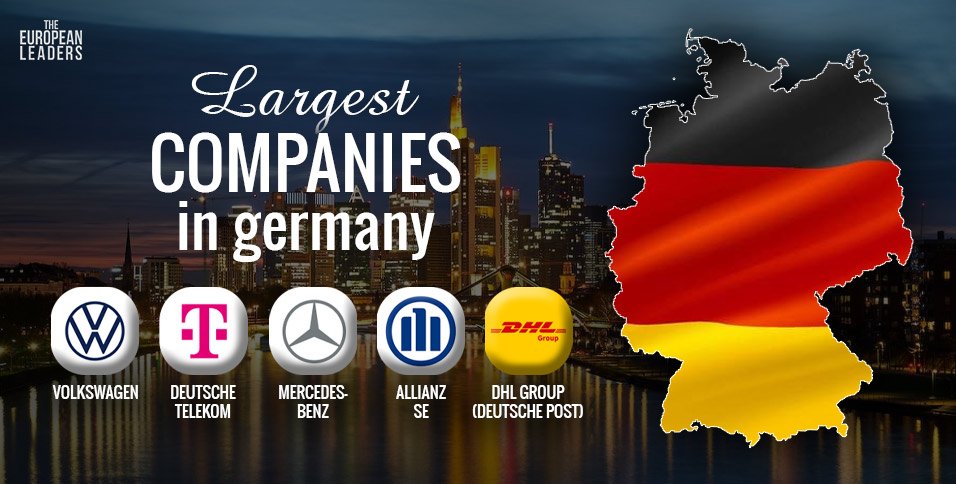The European Leaders
02 January 2025
Berlin – The soaring ambitions of urban air mobility face turbulence as Volocopter files for insolvency, signaling a critical moment for the eVTOL industry. Could this mark a turning point for sustainable aviation?
Volocopter, the German pioneer in electric vertical take-off and landing (eVTOL) aircraft, has filed for insolvency amid financial struggles. The company submitted its application on December 26, 2024, to the Karlsruhe Local Court, citing an inability to secure critical funding amidst economic headwinds. Tobias Wahl of Anchor Rechtsanwältegesellschaft mbH has been appointed as provisional administrator to oversee restructuring efforts.
Despite its groundbreaking technology and a promising vision for urban air mobility, Volocopter’s insolvency raises questions about the future of air taxi transportation in Europe.
The Rise and Fall of a Pioneer
Founded in 2011, Volocopter emerged as a leader in the eVTOL industry, renowned for its innovative VoloCity aircraft. The company aimed to revolutionize urban transportation with all-electric, eco-friendly solutions. However, after initial successes, delays in obtaining European Union Aviation Safety Agency (EASA) certifications and difficulties in raising capital forced Volocopter to take the drastic step of filing for insolvency.
The company faced compounded challenges, including the cancellation of test flights during the Paris Olympics, which further eroded investor confidence. As Volocopter files for insolvency, its leadership remains committed to restructuring operations and pursuing its dream of launching commercial air taxis by 2025.
Why Did Volocopter Files for Insolvency?
- Funding Woes: Despite successful past funding rounds, Volocopter struggled to attract new investment, exacerbated by increasing skepticism in the eVTOL sector.
- Certification Delays: Regulatory setbacks, including postponed approvals that caused missed opportunities like test flights during the Paris Olympics, further strained finances.
- Market Challenges: Operating within a nascent industry, Volocopter faced fierce competition and a tightening capital market, leaving little room for error.
Navigating the Insolvency
Volocopter plans to maintain operations during insolvency proceedings, with a restructuring plan expected by February 2025. CEO Dirk Hoke expressed cautious optimism, stating, “While the challenges are significant, our technological advancements and strong team give us hope for recovery.”
The company is actively pursuing new investors and exploring partnerships, including discussions with Geely, a major shareholder, for a potential $95 million cash injection.
Broader Industry Implications
Volocopter’s insolvency mirrors struggles faced by other eVTOL pioneers like Lilium, highlighting the financial fragility of the urban air mobility sector. Investor confidence has waned as timelines for commercial launches extend, and burn rates climb without immediate returns.
Key Concerns:
- Erosion of Trust: Investor skepticism may lead to a cautious funding environment, particularly for early-stage startups.
- Consolidation Likely: Established players like Joby Aviation could benefit as the industry consolidates around firms with clearer paths to profitability.
- Innovation Slowdown: A reduced competitive landscape could temper technological breakthroughs, hindering the industry’s overall progress.
The Future of Urban Air Mobility
Despite current setbacks, the eVTOL market still holds promise, with forecasts predicting substantial growth from $1.2 billion in 2023 to $23.4 billion by 2030. Demand for sustainable, efficient urban transportation remains a driving force, but achieving mass adoption will require overcoming regulatory hurdles, securing investor confidence, and delivering reliable, certified products.
What’s Next for Volocopter?
As Volocopter files for insolvency, its journey underscores the volatility of pioneering new industries. While the company’s challenges are significant, its determination to innovate remains a beacon of hope for urban air mobility enthusiasts.
Whether Volocopter can navigate its current crisis and soar again will depend on its ability to secure funding and regain market confidence.
For now, Volocopter’s insolvency serves as a cautionary tale about the challenges of pioneering innovation in a high-stakes, capital-intensive industry. Whether it marks a temporary setback or the beginning of the end for Europe’s air taxi dreams remains to be seen.








